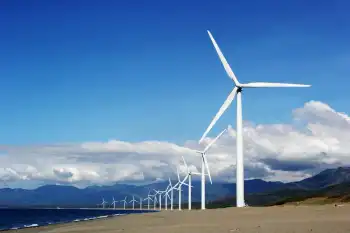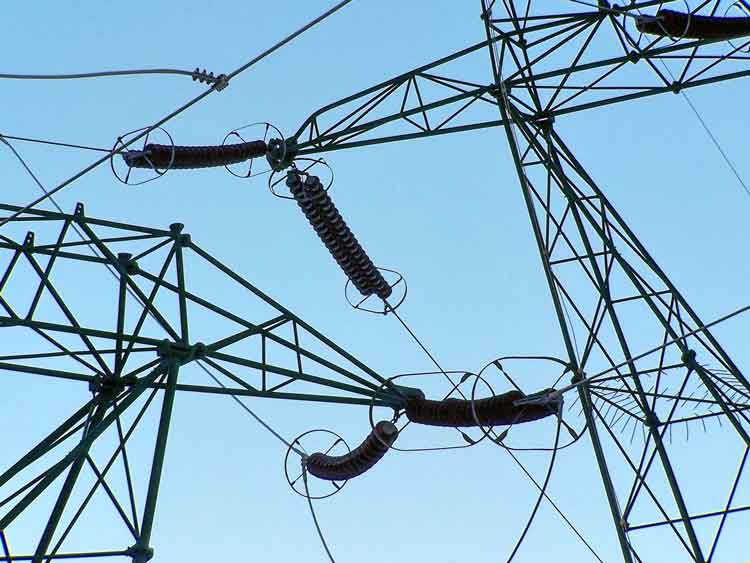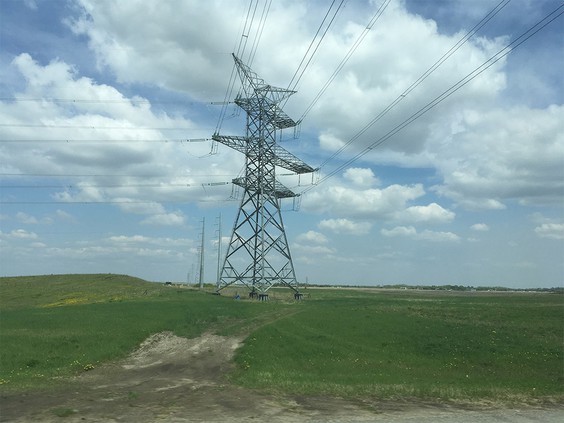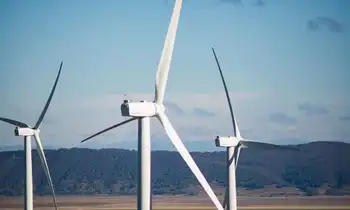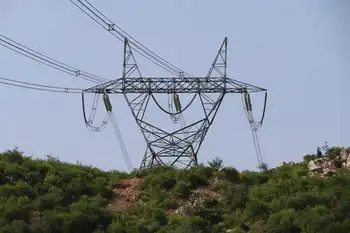Ukraine Energy Grid Attacks intensify as missile strikes and drone raids hit power plants, substations, and transmission lines, causing blackouts, disrupted logistics, and humanitarian strain during winter, despite repairs, air defense, and allied aid.
Key Points
Missile and drone strikes on Ukraine's power grid to force blackouts, strain civilians, and disrupt military logistics.
✅ Targets: power plants, substations, transmission lines
✅ Impacts: blackouts, heating loss, hospital strain
✅ Goals: erode morale, disrupt logistics, force aid burdens
Russia’s continued strikes on Ukraine have taken a severe toll on the country’s critical infrastructure, particularly its energy grid, as Ukraine continues to keep the lights on despite sustained bombardment. In recent months, Western Ukraine has increasingly become a target of missile and drone attacks, leading to widespread power outages and compounding the challenges faced by the civilian population. These strikes aim to cripple Ukraine's resilience during a harsh winter season and disrupt its wartime operations.
Targeting Energy Infrastructure
Russian missile and drone assaults on Ukraine’s energy grid are part of a broader strategy to weaken the country’s morale and capacity to sustain the war effort. The attacks have primarily focused on power plants, transmission lines, and substations. Western Ukraine, previously considered a relative safe haven due to its distance from front-line combat zones, is now experiencing the brunt of this campaign.
The consequences of these strikes are severe. Rolling blackouts and unplanned outages have disrupted daily life for millions of Ukrainians, though authorities say there are electricity reserves that could stabilize supply if no new strikes occur, leaving homes without heating during freezing temperatures, hospitals operating on emergency power, and businesses struggling to maintain operations. The infrastructure damage has also affected water supplies and public transportation, further straining civilian life.
Aimed at Civilian and Military Impact
Russia’s targeting of Ukraine’s power grid has dual purposes. On one hand, it aims to undermine civilian morale by creating hardships during the cold winter months, even as Ukraine works to keep the lights on this winter through contingency measures. On the other, it seeks to hinder Ukraine’s military logistics and operations, which heavily rely on a stable energy supply for transportation, communications, and manufacturing of military equipment.
These attacks coincide with a broader strategy of attritional warfare, where Moscow hopes to exhaust Ukraine’s resources and diminish its ability to continue its counteroffensive operations. By disrupting critical infrastructure, Russia increases pressure on Ukraine's allies to step up humanitarian and military aid, stretching their capacities.
Humanitarian Consequences
The impact of these power cuts on the civilian population is profound. Millions of Ukrainians are enduring freezing temperatures without consistent access to electricity or heating. Vulnerable populations, such as the elderly, children, and those with disabilities, face heightened risks of hypothermia and other health issues.
Hospitals and healthcare facilities are under immense strain, relying on backup generators that cannot sustain prolonged use. In rural areas, where infrastructure is already weaker, the effects are even more pronounced, leaving many communities isolated and unable to access essential services.
Humanitarian organizations have ramped up efforts to provide aid, including distributing generators, warm clothing, and food supplies, while many households pursue new energy solutions to weather blackouts. However, the scale of the crisis often outpaces the resources available, leaving many Ukrainians to rely on their resilience and community networks.
Ukraine's Response
Despite the challenges, Ukraine has demonstrated remarkable resilience in the face of these attacks. The government and utility companies are working around the clock to repair damaged infrastructure and restore power to affected areas. Mobile repair teams and international assistance have played crucial roles in mitigating the impact of these strikes.
Ukraine’s Western allies have also stepped in to provide support. The European Union, the United States, and other countries have supplied Ukraine with energy equipment, financial aid, and technical expertise to help rebuild its energy grid, though recent decisions like the U.S. ending support for grid restoration complicate planning and procurement. Additionally, advanced air defense systems provided by Western nations have helped intercept some of the incoming missiles and drones, though not all attacks can be thwarted.
Russia’s Escalation Strategy
Russia’s focus on Western Ukraine reflects a shift in its strategy. Previously, attacks were concentrated on front-line areas and major urban centers in the east and south. However, by targeting the western regions, Moscow seeks to disrupt the relatively stable zones where displaced Ukrainians and critical supply chains are located.
Western Ukraine is also a hub for receiving and distributing international aid and military supplies. Striking this region not only undermines Ukraine’s internal stability but also sends a message to its allies about Russia’s willingness to escalate the conflict further.
Broader Implications
The attacks on Ukraine’s energy grid have broader geopolitical implications. By targeting infrastructure, Russia intensifies the pressure on Ukraine’s allies to continue providing support, even as Kyiv has at times helped Spain amid blackouts when capacity allowed, testing their unity and resolve. The destruction also poses long-term challenges for Ukraine’s post-war recovery, as rebuilding a modern and resilient energy system will require significant investments and time.
Moreover, these attacks highlight the vulnerability of civilian infrastructure in modern warfare, echoing that electricity is civilization amid winter conditions. The deliberate targeting of non-combatant assets underscores the need for international efforts to strengthen the protection of critical infrastructure and address the humanitarian consequences of such tactics.
The Russian attacks on Western Ukraine's power grid are a stark reminder of the devastating human and economic costs of the ongoing conflict. While Ukraine continues to demonstrate resilience and adaptability, the scale of destruction underscores the need for sustained international support. As the war drags on, the focus must remain on mitigating civilian suffering, rebuilding critical infrastructure, and pursuing a resolution that ends the violence and stabilizes the region.
Related News






